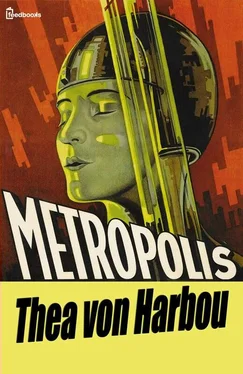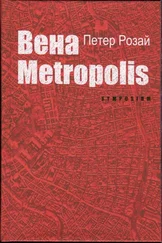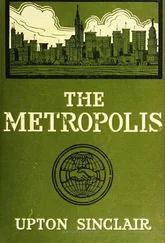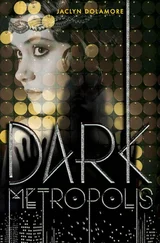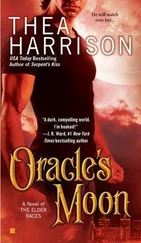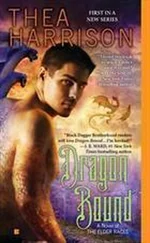Metropolis
by Thea von Harbou
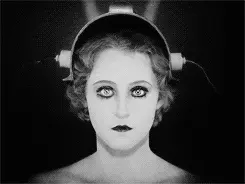
Thea Gabriele von Harbou(December 27, 1888 — July 1, 1954) was a German actress and author of Prussian aristocratic origin. In 1905, she published her first novel in the Deutsche Roman-Zeitung. However, she then started to work as an actress, beginning in 1906 in Düsseldorf, then moving to Weimar (1908), Chemnitz (1911) and Aachen (1913). In Aachen she met her first husband, the actor and director Rudolf Klein-Rogge, whom she married in 1914. In 1920, she wrote her first film script Das Indische Grabmal (The Indian Tomb, Mysteries of India), together with Fritz Lang. Fritz Lang became her second husband in 1922, and they collaborated in the following years, writing the screenplays for Metropolis and M together. They separated in October 1931 and divorced in 1933. In 1932, a year before Adolf Hitler came to power, she joined the Nazi Party. This presumably led to the divorce from Lang, who left Germany in 1934 for Paris after his film Das Testament des Dr. Mabuse had been declared illegal by Nazi officials because of perceived criticism of Nazi ideology. Harbou wrote the script for Der Herrscher 1937, directed by Veit Harlan and starring Emil Jannings. The movie celebrates unconditional submission under absolute authority, eventually finding reward in total victory. After the war she was detained by the British military government, and then did unskilled labor, like cleaning up rubble from the bombing. After receiving a working permit she did some synchronizing of movies, but also continued to write scripts. In 1954 she died in Berlin. (Source: Wikipedia)
Copyright:This work is available for countries where copyright is Life+50.
Note:This book is brought to you by Feedbooks
Strictly for personal use, do not use this file for commercial purposes.
This book is not of today or of the future.
It tells of no place.
It serves no cause, party or class.
It has a moral which grows on the pillar of understanding:
"The mediator between brain and muscle must be the Heart."
— T. v H.
Now the rumbling of the great organ swelled to a roar, pressing, like a rising giant, against the vaulted ceiling, to burst through it.
Freder bent his head backwards, his wide-open, burning eyes stared unseeingly upward. His hands formed music from the chaos of the notes; struggling with the vibration of the sound and stirring him to his innermost depths.
He was never so near tears in his life and, blissfully helpless, he yielded himself up to the glowing moisture which dazzled him.
Above him, the vault of heaven in lapis lazuli; hovering therein, the twelve-fold mystery, the Signs of the Zodiac in gold. Set higher above them, the seven crowned ones: the planets. High above all a silver-shining bevy of stars: the universe.
Before the bedewed eyes of the organ-player, to his music, the stars of heavens began the solemn mighty dance.
The breakers of the notes dissolved the room into nothing. The organ, which Freder played, stood in the middle of the sea.
It was a reef upon which the waves foamed. Carrying crests of froth, they dashed violently onward, and the seventh was always the mightiest.
But high above the sea, which bellowed in the uproar of the waves, the stars of heaven danced the solemn, mighty dance.
Shaken to her core, the old earth started from her sleep. Her torrents dried up; her mountains fell to ruin. From the ripped open depths the fire welled up; The earth burnt with all she bore. The waves of the sea became waves of fire. The organ flared up, a roaring torch of music. The earth, the sea and the hymn-blazing organ crashed in and became ashes.
But high above the deserts and the spaces, to which creation was burnt, the stars of heaven danced the solemn mighty dance.
Then, from the grey, scattered ashes, on trembling wings unspeakably beautiful and solitary, rose a bird with jewelled feathers. It uttered a mournful cry. No bird which ever lived could have mourned so agonisingly.
It hovered above the ashes of the completely ruined earth. It hovered hither and thither, not knowing where to settle. It hovered above the grave of the sea and above the corpse of the earth. Never, since the sinning angel fell from heaven to hell, had the air heard such a cry of despair.
Then, from the solemn mighty dance of the stars, one freed itself and neared the dead earth. Its light was gentler than moonlight and more imperious than the fight of the sun. Among the music of the spheres it was the most heavenly note. It enveloped the mourning bird in its dear light; it was as strong as a deity, crying: "To me… to me!"
Then the jewelled bird left the grave of the sea and earth and gave its sinking wings up to the powerful voice which bore it. Moving in a cradle of light, it swept upwards and sang, becoming a note of the spheres, vanishing into Eternity…
Freder let his fingers slip from the keys. He bent forward and buried his face in his hands. He pressed his eyes until he saw the fiery dance of the stars behind his eyelids. Nothing could help him — nothing. Everywhere, everywhere, in an agonising, blissful omnipresence, stood, in his vision, the one one countenance.
The austere countenance of the virgin, the sweet countenance of the mother — the agony and the desire with which he called and called for the one single vision for which his racked heart had not even a name, except the one, eternal, you… you… you!
He let his hands sink and raised his eyes to the heights of the beautifully vaulted room, in which his organ stood. From the sea-deep blue of the heavens, from the flawless gold of the heavenly bodies, from the mysterious twilight around him, the girl looked at him with the deadly severity of purity, quite maid and mistress, inviolability, graciousness itself, her beautiful brow in the diadem of goodness, her voice, pity, every word a song. Then to turn, and to go, and to vanish — no more to be found. Nowhere, nowhere.
"You—!" cried the man. The captive note struck against the walls, finding no way out.
Now the loneliness was no longer bearable. Freder stood up and opened the windows. The works lay, in quivering brightness, before him. He pressed his eyes closed, standing still, hardly breathing. He felt the proximity of the servants, standing silently, waiting for the command which would permit them to come to life.
There was one among them — Slim, with his courteous face, the expression of which never changed — Freder knew of him: one word to him, and, if the girl still walked on earth with her silent step, then Slim would find her. But one does not set a blood-hound on the track of a sacred, white hind, if one does not want to be cursed, and to be, all' his life long, a miserable, miserable man.
Freder saw, without looking at him, how Slim's eyes were taking stock of him. He knew that the silent creature, ordained, by his father, to be his all-powerful protector, was, at the same time, his keeper. During the fever of nights, bereft of sleep, during the fever of his work, in his work-shop, during the fever when playing his organ, calling upon God, there would be Slim measuring the pulse of the son of his great master. He gave no reports; they were not required of him. But, if the hour should come in which they were demanded of him, he would certainly have a diary of faultless perfection to produce, from the number of steps with which one in torment treads out his loneliness with heavy foot, from minute to minute, to the dropping of a brow into propped up hands, tired with longing.
Читать дальше
